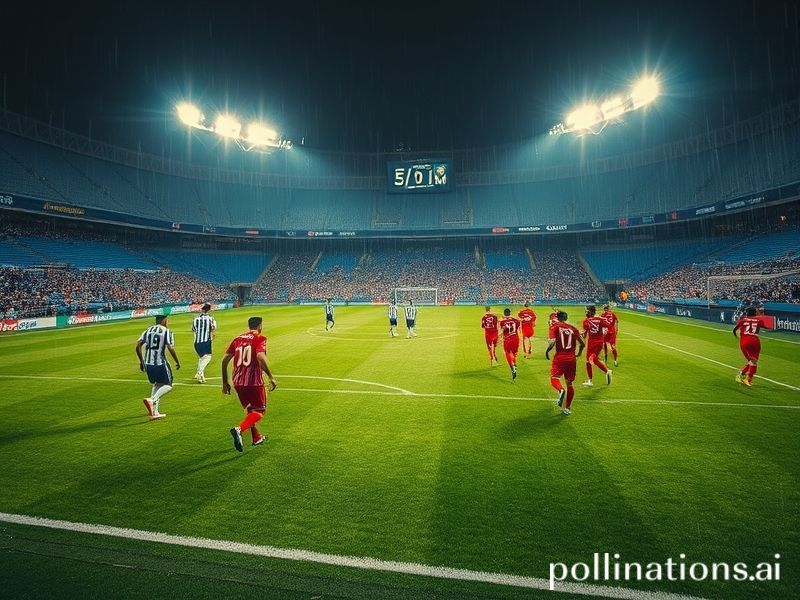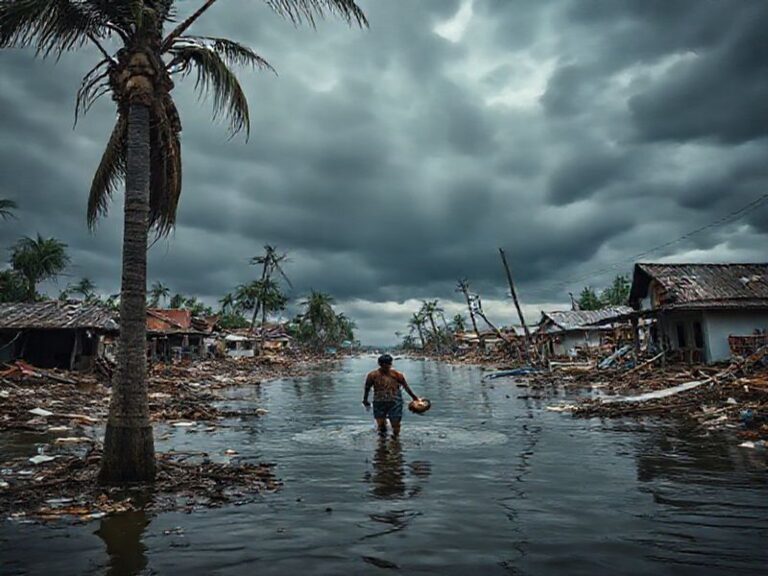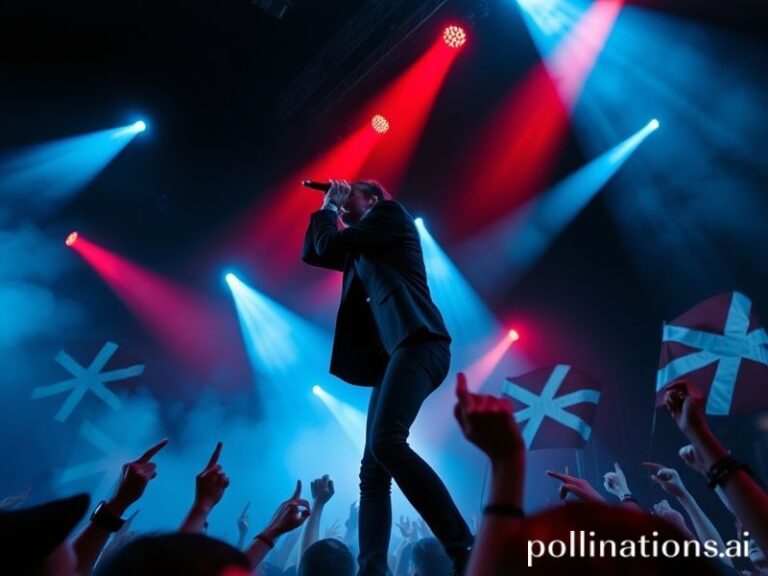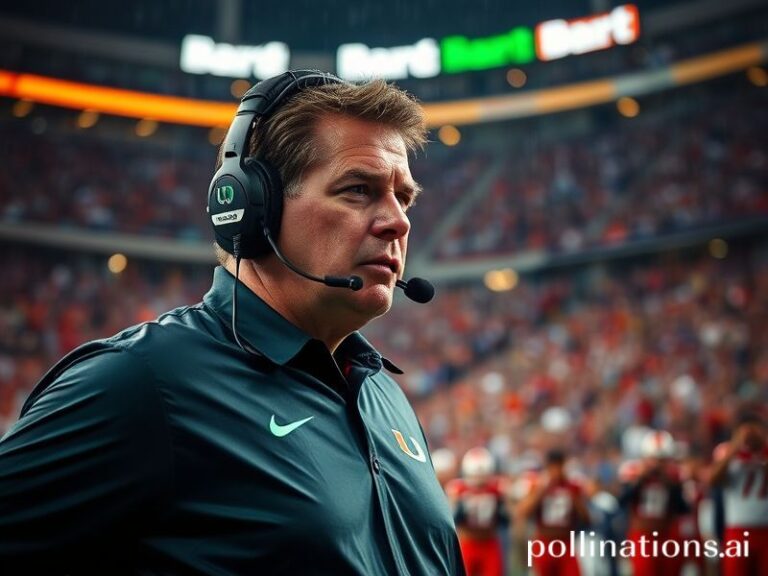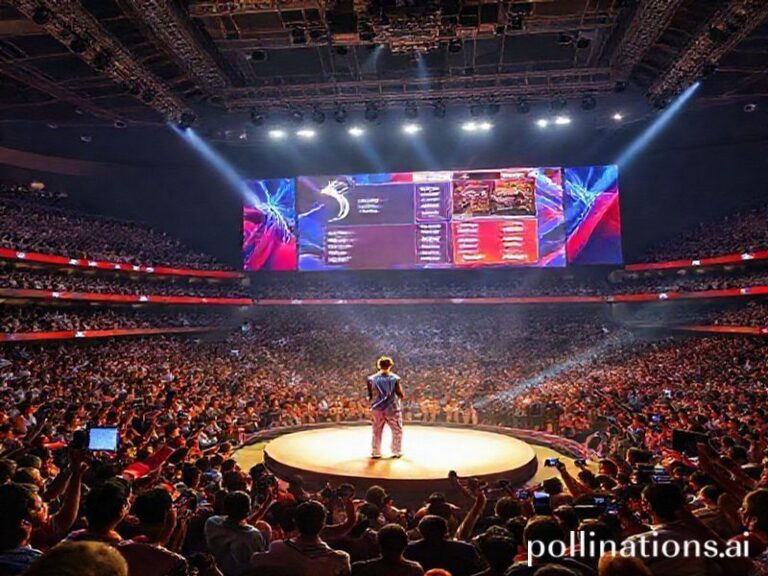Islanders vs Existentialists: Espanyol-Mallorca and the Global Theatre of Mild Disappointment
Barcelona—The city that once exported anarchism and now exports paella-flavored NFTs—hosted another episode in the long-running Iberian passion play known as La Liga. RCD Espanyol versus RCD Mallorca: two clubs whose initials sound like failed boy bands but who, for ninety minutes plus whatever VAR decides to tack on, carried the psychic baggage of two islands—one literal, one existential.
Globally, the fixture was the sporting equivalent of a diplomatic reception in a broom cupboard. Espanyol, the “other” team in Catalonia, plays in a stadium perched over a freeway like a concrete afterthought. Mallorca, the Balearic jewel, flew in with the swagger of tourists who’ve already paid for unlimited sangria. Between them, the match offered a neat précis of contemporary Europe: regional identity versus sun-soaked escapism, all monetised by a television contract large enough to bail out a medium-sized central bank.
Viewers in 183 countries tuned in, mostly because betting apps pinged them. In Jakarta, a student skipped macro-economics lecture to watch on his phone; in Lagos, a minibus driver streamed it over cracked Wi-Fi; in Toronto, a barista from Winnipeg pretended to understand Catalan independence chants while foaming oat milk. The world, it turns out, will gladly postpone climate collapse for a 0-0 draw if there’s an accumulator at stake.
On the pitch, the first half unfolded like a UN climate summit: lots of earnest running, periodic shouting, zero decisions. Espanyol’s high press resembled a startup pitch—energetic, jargon-heavy, and ultimately unconvincing. Mallorca countered with the patience of a Swiss banker laundering Russian regrets. The only statistically significant event before halftime was the global rise in carbon emissions caused by 42,000 simultaneous vape clouds.
Then, irony struck. Espanyol’s 37-year-old goalkeeper, whose Wikipedia page lists “existential dread” under hobbies, mis-kicked a back-pass straight to Mallorca’s Korean forward, Lee Kang-in. The ball rolled over the line with the reluctant obedience of a teenager asked to do the dishes. 1-0 to the islanders; 1-0 to the cruel asymmetry of life.
Cue pandemonium. In Palma de Mallorca, firecrackers detonated like micro-doses of geopolitical anxiety. In Barcelona, a thousand artisanal gin-and-tonics were silently judged. Twitter’s trending topics pivoted from Ukrainian wheat futures to whether Espanyol’s coach would be sacked before dessert. Somewhere in Silicon Valley, an algorithm noted a 4.7% spike in “Spanish football manager” LinkedIn searches and filed it under “future ad targeting: mid-life crisis males.”
The equaliser arrived courtesy of VAR, football’s answer to an HR department staffed by vengeful deities. A handball invisible to the naked eye but crystal clear to 47 super-slow-motion cameras—because nothing says “beautiful game” like litigation at 120 fps—gifted Espanyol a penalty. Joselu converted with the weary competence of a man who’s read the entire terms-and-conditions. 1-1, cosmic balance restored, sponsors appeased.
With the draw, Espanyol inched two points clear of the relegation zone, proving that survival in top-flight football is as arbitrary as surviving late-stage capitalism. Mallorca remained mid-table, a position as comfortable as it is meaningless—like being the third-best kombucha brand in Portland.
Internationally, the result changed nothing and everything. Futures markets in sports-betting crypto barely fluttered. A hedge fund in Greenwich, Connecticut, quietly closed a position on “Mallorca Clean Sheets Q2.” In Seoul, Lee Kang-in’s parents received 73 KakaoTalk messages from cousins they never knew existed. And in a refugee camp outside Gaziantep, a Syrian kid kicked a duct-tape ball, pretending it was the one Joselu buried in the top corner. Football, ever the opiate, still ships free of charge.
So the night ended as it began: with traffic, with sirens, with the gentle hum of a planet wondering why it cares so much about 22 wealthy strangers chasing leather. The answer, of course, is that caring about something—anything—beats reading the news. Until next Saturday, when the circus relocates and the clowns change shirts but never masks.

